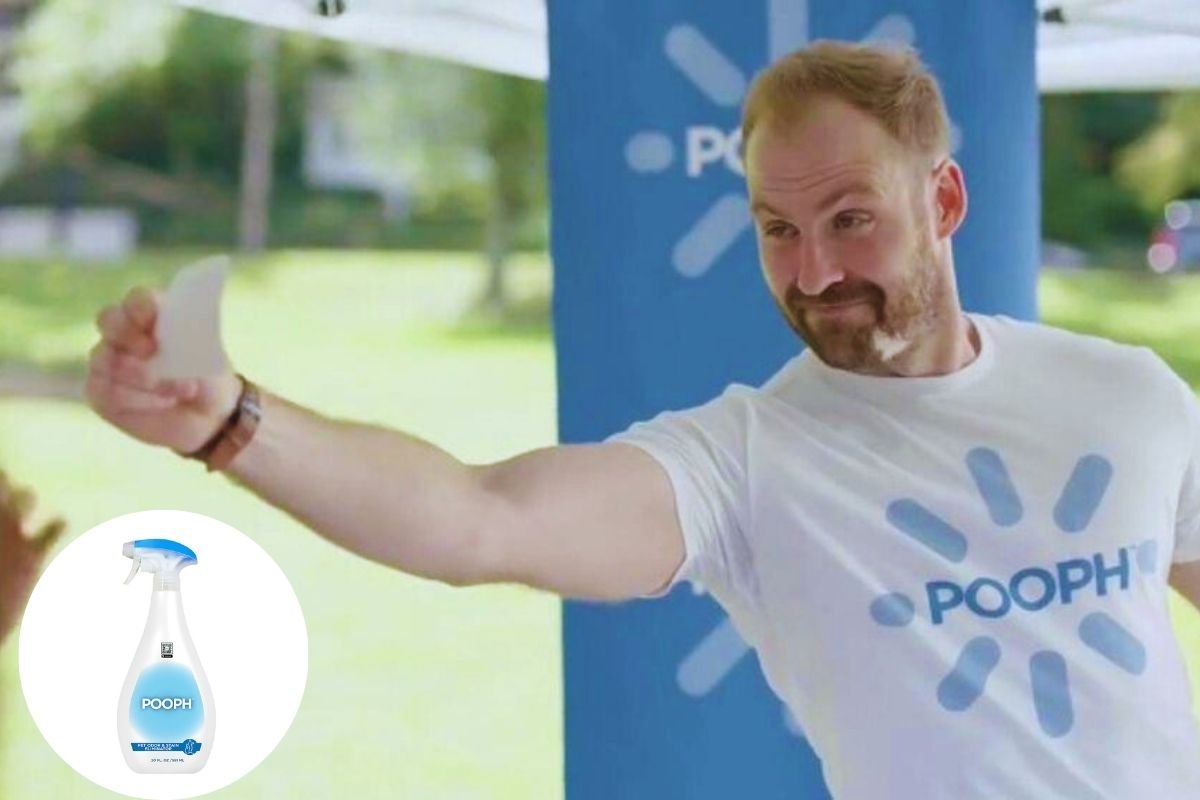If you’re curious whether does Pooph really work for eliminating stubborn pet odors, you’re not alone. Many pet owners wonder: does Pooph really work as advertised—especially when compared to enzyme cleaners and fragrance sprays?
This article delves deep into real-world feedback, lab insights, and expert findings to answer: does Pooph really work when it comes to neutralizing organic odors instead of masking them?
What Is Pooph and Its Claims?
The question does-Pooph-really work hinges on its core technology. Pooph markets itself as a fragrance-free, oxidizer-based pet odor eliminator that neutralizes odor molecules instantly—without harsh chemicals. It claims to function on contact, eliminating urine, poop, smoke, and even skunk smells.
So, again: does-Pooph really work for these odor types? Let’s explore further.
How Pooph Works: The Science Explained
To understand does Pooph really work, it helps to know the mechanism. Pooph relies on a mineral-based oxidizing agent—iodine—that chemically breaks down odor molecules at the molecular level.
Rather than masking smells, Pooph aims to convert volatile odor compounds into non-offensive forms. This kind of oxidation is well-established chemistry—so the science supports does Pooph really work in principle.
Real User Experiences: What Reviews Reveal
When users ask does Pooph really work, many affirm it does. A top Amazon review shares: “Smell gone after 1st application… now always have a bottle on hand.”
Another home-cleaning analysis of thousands of Pooph reviews found mixed feedback: about 58% positive sentiment overall, but only around 40% reported clear effectiveness for pet odors.
This suggests does Pooph really work—yes for many users, but not consistently across all cases.
Skunk and Extreme Odor Claims Tested
Skunk sprays are notoriously difficult. One Amazon review states: “Nothing worked… smell lingered for months… Pooph eliminated it after 1 application.
Yet some users say it only reduced intensity slightly—not a full elimination—which raises the question: does Pooph really work equally well on extreme odors? The answer appears conditional.
Limitations Highlighted by Advertising Watchdogs
In late 2024, the National Advertising Division (NAD) challenged Pooph’s claims, cautioning that its packaging overstates odor/stain elimination at the molecular level.
This regulatory finding casts doubt on absolute claims and supports nuanced interpretation of does Pooph really work—it may reduce odors, but full elimination is not guaranteed.
Success Stories: Specific Use Cases
Answering does Pooph really work often means context:
- Routine odors: cat urine, dog accidents, litter box smells—most users see immediate improvement.
- Stains and fabrics: several report stain reduction and fresh surfaces—though some were disappointed on tough, set-in stains.
It’s especially effective when applied promptly and thoroughly.
Common Complaints & Fail Points
When evaluating does Pooph really work, kind of use and surface matter.
Complaints include:
- Poor spray nozzle or missing sprayerAmazon
- Odor returning in 1–2 days on heavy soiling
- Perceived value lower than enzyme-based alternatives when smell is persistent
These caveats help explain why does Pooph really work yields mixed outcomes for some users.
Pooph vs Enzymatic Cleaners: Which Works Better?
To answer does Pooph really work relative to enzymes, consider: Enzymatic cleaners digest waste proteins over time, while Pooph oxidizes instantly.
For deep-set or dried-in mess, enzymes may outperform simple oxidation. But for quick surface cleanups, Pooph may deliver faster results. So the answer depends on context and expectation.
Safety and Fragrance-Free Benefits
One reason many ask does Pooph really work is its clean profile. Reviews repeatedly praise its safety: no harsh chemicals, non-toxic, fragrance-free, and pet-safe.
This makes Pooph ideal for households with sensitive individuals—and the safety claim appears well-supported.
Value Comparison and Cost-Effectiveness
Cost per 32oz bottle sits around $20–25. Some complain Pooph is overpriced given inconsistent performance.
Comparatively, enzyme-based sprays often cost less. So when asking does Pooph really work for the price, consumers must weigh convenience and safety versus efficacy and budget.
Expert Reviews and Laboratory Findings
Home clean pros frequently cite enzyme and oxidizer blends as top performers. Pooph isn’t yet featured among Good Housekeeping top odor eliminators—but its chemistry aligns with recognized oxidizing methods.
Thus, does Pooph really work from a technical standpoint? Yes, though independent lab comparisons are limited.
How to Use Pooph Most Effectively
To maximize results and ensure does Pooph really work in your case, follow these guides:
- Pre-clean solids before spraying.
- Saturate the stained area generously.
- Allow 5–10 minutes dwell time.
- Reapply if odor persists or is strong.
- Use on multiple surfaces: textiles, carpets, furniture, etc.
Summary Table: Does Pooph Really Work?
| Scenario | Performance |
|---|---|
| Fresh pet accidents | Usually effective |
| Litter box odor | Most users see positive results |
| Skunk or extreme odor | Mixed results; sometimes effective |
| Set-in urine/stains | Often partial; may require multiple sprays |
| Fragrance-free homes | Ideal for sensitive users |
| Price sensitivity | Criticized for high cost in some cases |
Conclusion: Final Verdict on ‘Does Pooph Really Work’
In summary: does Pooph really work? The answer: Yes, in most cases, particularly for fresh pet odors and surface cleaning. Its odor-neutralizing chemistry is sound, and many reviews confirm its effectiveness without masking smells.
However, does Pooph really work 100% on deep-set, aged, or extreme odors? No—not always. Some users report limited duration or less effectiveness in high-demand cases. Its value also depends on cost concern and comparison with enzyme products.
So, does Pooph really work? Yes—with consistent results in defined scenarios and proper use—but it’s not a universal miracle solution.
READ MORE: Travis Kelce Relationship
